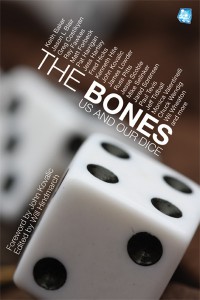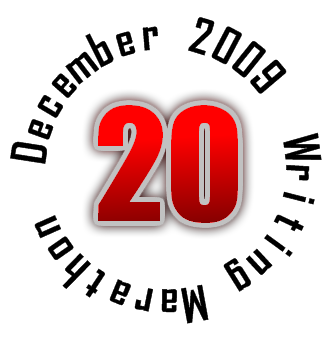I’m writing this post today from my soapbox. Someone pushed a button, you see, a very large, red “DO NOT EVER PUSH” button, and writing this down is cathartic. So why am I sharing it?
Well, because I know I’m not alone. Every time I talk about this (or vent) to some other creative professional they understand. So here goes… (Wish me luck!)
There is a difference between being insecure as a person and being insecure about your writing. There is also a difference between being insecure about your writing and being insecure about what other people say about your writing.
Insecurity is, unfortunately, part of the writer’s journey and it can be an incredibly crappy thing to deal with. Doesn’t matter if you write non-fiction, fiction, gaming narratives, screenplays, commercials — whatever. You may be proud of something, until someone else gets their hands on it. A reviewer. A professor. An editor. A peer.
Some criticism is necessary to make the project better. This? This I’m okay with because a good editor is a diamond in the rough. A good editor will help you look your best — and who wouldn’t want that?
The worse, it seems, can come from others within the community or avid readers who prefer one thing but not another. Genre isn’t as good as literary fiction. Speculative fiction is better than science fiction. Non-fiction is good, but only if you’re accredited with the experience and knowledge to write it. Winning an award is good, but only if you win X award. Marketing copy can only be written if you follow the school of thought from X luminary. You’re not a real author until you get optioned for a movie. In order to be considered a serious author, you need to have X amount of books out. You have to be published by New York or you’re nothing. Small press publishers are just amateurs begging for money. Editors are frustrated writers. If you don’t make X amount a year, you’re not really serious about writing. If you can’t write a story on the first try, then you’re a bad writer.
And so on… And so forth… And so on…
I’ve been through enough rounds of feedback to know the difference between valid criticism and snarky comments. Both exist. Both have to be handled graciously or it may backfire. I’ve been back online for less than two weeks, and now I’m noticing other people’s hypersensitivity. Criticizing a tweet or a Facebook update. Correcting someone on semantics without understanding their meaning. (I call this the curse of “Well, actually!”)
What is this crap? It’s meaningless b.s. that taps into some insecurity on some level — but it’s about as useful as a giving a beer to an alcoholic. The worst part about this (which is where the button-pushing comes into play) is that often these comments are not meant maliciously. (Yes, there are some that are…) Most of the time, though, it’s because the person making the comment is damn insecure about their work, you see, and they’re looking for validation by reminding themselves what they don’t like about yours.
If you want to know what drives me to write better, to be a better person, to seek out new opportunities and deliver the finest product I can — this is part of that reason. I compete against myself every day not because I’m insecure about my work, but because I will never have written, polished or delivered “enough” quality stories and games. I have had a love-hate relationship with my creative side my whole life, because it took me a long time to find my tribe. You know what I’m talking about. People that will cheer and read everything you publish because they enjoy it that much. A support group. Haven’t hit the proverbial thousand fans yet, but whether it takes ten years or twenty — I’m not going to stop just because someone says I’m nobody or thinks I’m not important enough. To them? Sure. But not to me.
Yes, I may idealize the concept of community but the alternative? To be bitter or a drama queen or whatever? I don’t have time for that. I really, really don’t. In a world rife with criticism and negativity, I would much rather compliment and uplift than talk about how great I am and how sh*tty everyone else is. That is not how I roll.
In the end, I feel we have forgotten that words — on or off the page — have power. We forget that there is another person on the end of that line. That author? May have the same exact hopes and dreams and wishes that we do. How would you feel if you told someone their work was crappy because it didn’t get published according to your standards? Sometimes, all it takes is for a smile or a kind word to make someone’s day. To me? That’s power to be used responsibly. For writers, words are everything.
And with that, I step (carefully) off my soapbox and tell another story. May yours be everything you’ve ever dreamed them to be. And I sincerely and deeply wish that you reap the successes you deserve.
I’ve got a hell of a lot of writing to do and, quite frankly, I’m okay with that. I am loving this manuscript and I know someone else will, too.

 Yesterday, I was replying to
Yesterday, I was replying to  So what do you do when you feel bitterness seeping into your bones? You write more, dammit. No seriously. You drop what you’re doing and you work your ass off. You’re never going to get anywhere unless you put your fingers on your keyboard and write another story. Then you submit it. Then you work on the next one. And so on.
So what do you do when you feel bitterness seeping into your bones? You write more, dammit. No seriously. You drop what you’re doing and you work your ass off. You’re never going to get anywhere unless you put your fingers on your keyboard and write another story. Then you submit it. Then you work on the next one. And so on.  If you’ve been following my blog, you may have seen my earlier post about
If you’ve been following my blog, you may have seen my earlier post about  We’re two-thirds of the way through, and from what many of you have been sharing, this has been a “busy-insane-nutso” month for many of us. Still, regardless of whether or not you’ve written or revised one chapter or several, there’s something we can all learn from being this busy. Sometimes, in order to write we need to shut off our brains and just put our fingers on the keyboard. (Like Yoda says, “Do or do not, there is no try.”)
We’re two-thirds of the way through, and from what many of you have been sharing, this has been a “busy-insane-nutso” month for many of us. Still, regardless of whether or not you’ve written or revised one chapter or several, there’s something we can all learn from being this busy. Sometimes, in order to write we need to shut off our brains and just put our fingers on the keyboard. (Like Yoda says, “Do or do not, there is no try.”)